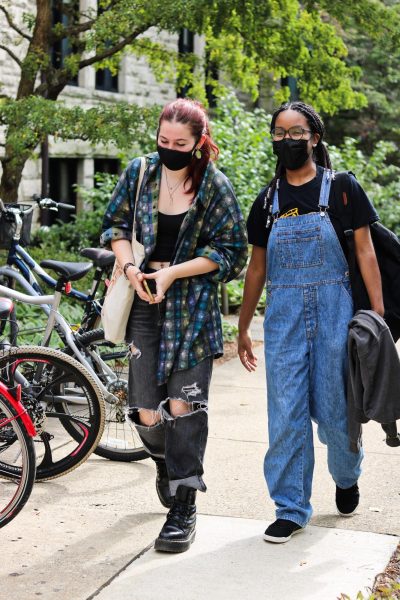Simply Voting Is No Longer Enough
Today, citizens and residents of the U.S. are more angry, emotional, and divided than we’ve ever been — and, doubtless, there’s plenty to be angry about. Children remain separated from their parents and locked away in prison camps on the southern border; successive conservative administrations have all but annihilated the pro-poor welfare policies of the mid-20th century; and now, the president has been acquitted by spineless politicians who seek to avoid accountability for aiding and abetting high crimes and misdemeanors. The racist and colonialist foundations of the U.S., which have driven this country in a conservative arc for centuries, have now given rise to an administration so thoroughly invested in maintaining the privilege of the white and rich that its actions threaten to tear down what democratic institutions the U.S. still maintains.
Meanwhile, we are only one country among many that are resisting a rise in nativism and xenophobia, both within society and among governing elites. In India, for example, after six years of extremist pro-Hindu policies, the introduction of an immigration bill which favors non-Muslim immigrants sparked widespread protests throughout the country, which have since morphed into a broader condemnation of Narendra Modi’s Islamophobic leadership. In Chile, a small hike in the subway fare in Santiago prompted a full-scale civil uprising against the country’s devastating and persistent wealth inequality.
However, the U.S. stands out among these countries, simply put, because in the face of similar problems of wealth inequality, corruption, political mismanagement, racist and classist elites, and the weakening of democratic institutions, few Americans are out in the streets protesting. The U.S. has yet to see a widespread, broad, and unified social uprising against the political and economic powers that be, as there have been in Hong Kong and Lebanon. While many have argued that the U.S. is desperately due for a revolution, few seem willing to attempt one, nor is there consensus on what system would replace the one which we currently have.
Others have argued that progressive, anti-establishment candidates such as Bernie Sanders and Elizabeth Warren are the revolution. While they often employ revolutionary rhetoric — Sanders in particular — neither of them represents a civilian-led, foundational movement outside of the American electoral system. And even if either were to be elected — as they hopefully will be — this would not guarantee an end to the long-term bastions of conservative political power in the U.S. legislature and judiciary, nor would it prevent right-wing elites from retaking political power in subsequent elections.
So what’s the difference in the U.S.? Why do we consistently see organized grassroots, outside-of-the-system, and anti-racist political movements, such as Black Lives Matter, fail to gain widespread public support? Why have the ongoing atrocities of the Trump administration, rarely seen among even the most conservative American political administrations, failed to catalyze an in-the-streets revolution in the U.S.?
The answer is simple. America is a deeply electoral country. We are so wedded to the concept of electoral democracy that we would rather advocate for candidates than specific political goals. Revolution is unlikely so long as there exists the possibility of electing new leadership in just a few years or, in this case, a few short months. The massive quantity of political influence and wealth in this country that could go toward the implementation of specific policies instead goes toward specific candidates, many of whom ultimately compromise on key progressive promises in order to overcome political deadlock. Meanwhile, the grievances of America’s poor continue to go unaddressed as political campaigns focus more on their own electability than the daily problems of their constituents.
I’ll say this clearly: I do plan to vote in the 2020 election. I also plan to vote in my state and local elections. Voting is doubtlessly a useful, easy, and inexpensive way to support positive change and reduce the overall damage suffered by the poor and vulnerable, but it does not substitute for a foundational transition of power away from the wealthy political elite. The Trump administration has demonstrated clearly that the U.S. is long overdue for an overhaul of the system. And furthermore, if Trump wins the presidency again and secures another four years of power, Americans must abandon their willingness to simply wait until the next opportunity to vote him out. For all we know, by the time that opportunity arrives, electoral institutions in the U.S. may be so thoroughly degraded that even the possibility of winning that election will cease to exist.
The U.S. is coming to a reckoning with its racist and classist history, but one thing is clear: Voting is no longer enough. The time has come for a grassroots revolution guided by our most vulnerable and supported by those with the necessary resources and privilege. America had better get on this train now; otherwise, we might lose the opportunity altogether.




